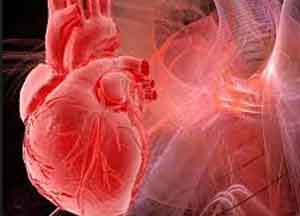- Home
- Editorial
- News
- Practice Guidelines
- Anesthesiology Guidelines
- Cancer Guidelines
- Cardiac Sciences Guidelines
- Critical Care Guidelines
- Dentistry Guidelines
- Dermatology Guidelines
- Diabetes and Endo Guidelines
- Diagnostics Guidelines
- ENT Guidelines
- Featured Practice Guidelines
- Gastroenterology Guidelines
- Geriatrics Guidelines
- Medicine Guidelines
- Nephrology Guidelines
- Neurosciences Guidelines
- Obs and Gynae Guidelines
- Ophthalmology Guidelines
- Orthopaedics Guidelines
- Paediatrics Guidelines
- Psychiatry Guidelines
- Pulmonology Guidelines
- Radiology Guidelines
- Surgery Guidelines
- Urology Guidelines
Vitamin D prevents heart failure after heart attack

Researchers used mouse models to investigate the impact of 1,25D, a form of vitamin D that interacts with hormones, on the cells that form scar tissue after a heart attack. These cells are called cardiac colony-forming unit fibroblasts (cCFU-Fs).Lead researcher Associate Professor James Chong said that vitamin D was known to help protect against heart failure, but its interaction with cCFU-Fs was not well established.
"The benefits of vitamin D are becoming increasingly known, but we still don't fully understand how mechanistically it can help with heart disease management. We wanted to know more about how vitamin D protects the heart after a heart attack," Associate Professor Chong explained.
Heart attacks occur when blood supply to the heart is blocked, leading to tissue damage. This triggers an inflammatory response where the cCFU-Fs replace the damaged tissue with collagen-based scar tissue.
"This is a problem because scarring of heart tissue can reduce the heart's ability to pump blood effectively, which can lead to heart failure," Associate Professor Chong said.
"Our research shows that vitamin D actually blocks the cCFU-Fs from forming scar tissue. By blocking cCFU-Fs, vitamin D may play an important role in lowering the risk of heart failure after a heart attack."
Heart failure is a life-threatening condition affecting an estimated 23 million people worldwide. Associate Professor Chong said that new treatments are necessary to reduce the global burden of heart failure.
"Cardiovascular diseases, including heart attacks and heart failure, are the leading cause of death worldwide," Associate Professor Chong said.
"To change this, we need to research heart conditions from every possible angle. This study is the first to demonstrate the role of 1,25D in regulating cardiac progenitor cells, and the findings are encouraging.
"With further study, vitamin D could prove to be an exciting, low-cost addition to current treatments, and we hope to progress these finding into clinical trials for humans," Associate Professor Chong concluded.

Disclaimer: This site is primarily intended for healthcare professionals. Any content/information on this website does not replace the advice of medical and/or health professionals and should not be construed as medical/diagnostic advice/endorsement or prescription. Use of this site is subject to our terms of use, privacy policy, advertisement policy. © 2020 Minerva Medical Treatment Pvt Ltd